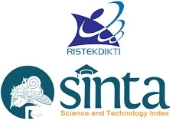TOURIST EXPERIENCE DARI SMART TOURISM DESTINATION, STUDI KASUS DI KOTA BANDUNG, JAWA BARAT, INDONESIA
Abstract
ABSTRAK
Tujuan penelitian ini adalah untuk memahami smart tourism destination dalam mempengaruhi tourist experience di Kota Bandung. Metode kuantitatif dilakukan pada penelitian ini. Data dikumpulkan dengan cara penyebaran kuesioner kepada para wisatawan yang datang ke Kota Bandung menggunakan smartphone juga melakukan wawancara dengan Dinas Kebudayaan dan Pariwisata (Disbudpar) Kota Bandung untuk menambah data mengenai penelitian ini. Analisis data metode linear berganda dilakukan dengan menggunakan SPSS berdasarkan data dengan skala ordinal dan analisis deskriptif. Hasil penelitian ini menunjukkan bahwa smart tourism destination berpengaruh pada tourist experience di Bandung. Penelitian ini diharapkan dapat menjadi acuan pengembangan konsep “smart tourism destination” yang dapat meningkatkan tourist experience di Kota Bandung.
Kata Kunci: Bandung, Smart Tourism Destination, Tourist Experience
ABSTRACT
The aim of this study is to know the influence of smart tourism destination (X) on the tourist experience (Y) in Bandung city. The research method is quantitative. The data collection is carried out by distributing the questionnaires to the tourists who visit Bandung using the smartphone and also held the interview with Dinas Kebudayaan dan Pariwisata (Disbudpar) of Bandung City to add the data for this research. Multiple linear methods with SPSS used to analyze the data as well as ordinal scale and descriptive analysis. The results showed that smart tourism destination is influencing tourist experience in Bandung. The result hopefully could be the reference on the development of the concept “smart tourism destination” that can improve tourist experience in Bandung.
Keywords: Bandung, Smart Tourism Destination, Tourist Experience
Keywords
Full Text:
PDFReferences
Badan Pusat Statistik. (2018). Jumlah Kunjungan Wisman ke Indonesia Agustus 2018. Di Akses dari: https://www.bps.go.id/pressrelease/2018/10/01/1476/jumlah-kunjungan-wisman-ke-indonesia-agustus-2018-mencapai-1-51-juta-kunjungan-.html
Buhalis, D., Amaranggana, A. (2014). Smart Tourism Destinations. Z. Xiang and I. Tussyadiah (eds.), Information and Communication Technologies in Tourism 2014, DOI: 10.1007/978-3-319-03973-2_40, Springer International Publishing Switzerland
Carballo, F., Moreno, S., León, C., & Ritchie, J. (2015). La creación y promoción de experiencias en un destino turístico: un análisis de la investigación y necesidades de actuación.Cuadernos de Turismo, (35), 71-94.
Cohen, B. (2012). “What exactly is a smart city.”
De Ávila, Lancis & Antonio López. (2015). “Smart Destination Report : building the future”. SEGITTUR. Madrid
Del Chiappa, G. and Baggio, R. (2015), “Knowledge transfer in smart tourism destinations: analyzing the effects of a network structure”, Journal of
Destination Marketing & Management, Vol. 30 No. 10, pp. 1757-1771, available at: http://doi.org/10.1016/j.jdmm.2015.02.001
Gretzel, U., Werthner, H., Koo, C., & Lamsfus, C. (2015). Conceptual foundations for understanding smart tourism ecosystems. Computers in
Human Behavior, 50, 558–563. http://doi.org/10.1016/j.chb.2015.03.043
Jovicic, D. Z. (2017). From the traditional understanding of tourism destination to the smart tourism destination. Current Issues in Tourism, (In press), http://doi.org/10.1080/13683500.2017.1313203
Kamil, Ridwan. (2014). Smart City Bandung.
Komninos, N., Pallot, M., & Schaffers, H. (2013). Special Issue on smart cities and the future Internet in Europe. Journal of the Knowledge Economy, 4(2), 119-134.
Koo, C., Yoo, K.-H., Lee, J.-N., & Zanker, M. (2016). Special section on generative smart tourism systems and management: Man-machine interaction. International Journal of Information Management, 36(6), 1301–1305. http://doi.org/10.1016/j.ijinfomgt.2016.05.015
Larsen, S. (2007). Aspects of a Psychology of the Tourist Experience, Scandinavian Journal of Hospitality and Tourism.
Lea, Rodger. (2017). Smart Cities: An Overview of the Technology Trends
Driving Smart Cities. IEEE Advancing Technology for Humanity. United States License.
Mauludy, M. F. (2017). Begini Cara Menggunakan Sepeda Keliling Bandung melalui Obike. Di Akses dari: https://www.pikiran-rakyat.com/bandung-raya/2017/12/20/begini-cara-menggunakan-sepeda-keliling-bandung-melalui-obike-416303
Mendes, J., Valle, P., Guerreiro, M., & Silva, J. (2010). The tourist experience:
Exploring the relationship between tourist satisfaction and destination loyalty. Tourism, 58(2), 111-126.
Noor, A., Suryana, M., Amalia, S. (2019). Social Media-Based Behavior To Promote Tourist Destination. Vol. 35, No.21. Opcion, Scopus Index Q3. Http://produccioncientificaluz.org/index.php/opcion/article/view/29562
Pearce, D. G. (2014). Toward an Integrative Conceptual Framework of Destinations. Journal of Travel Research, 53(2), 141–153. http://doi.org/10.1177/0047287513491334
Rivera, M. (2013). El turismo experiencial como forma de turismo responsable e intercultural. Universidad de Córdova, Cátedra Intercultural (Eds). Jornadas sobre Investigación e Innova-ción para la Interculturalidad. (pp. 199-217) Córdoba, España
Ryan, C. (2002). From motivation to assessment. In C. Ryan (Ed.), The Tourist Experience (2nd Edition). London: Continuum.
Sugiyono. (2010). Metode Penelitian Pendidikan Pendekatan Kuantitatif, kualitatif, dan R&D. Bandung: Alfabeta
Sugiyono. (2013). Metode Penelitian Kuantitatif, Kualitatif dan R&D. Bandung: Alfabeta.CV
Sugiyono. (2017). Metode Penelitian Kuantitatif, Kualitatif, dan R&D. Bandung : Alfabeta, CV.
Sumarwan. (2011). Riset Pemasaran dan Konsumen : Panduan Riset dan Kajian: Kepuasan, Perilaku Pembelian, Gaya Hidup, Loyalitas dan Persepsi Resiko,PT Penerbit IPB Press, Bogor.
Wisatabdg.com. (2018). Jelajah Wisata di Bandung Lebih Nyaman. Di Akses dari: https://www.wisatabdg.com/2018/11/jelajah-wisata-di-bandung-lebih-nyaman.html
Zygiaris, S. (2013). Smart city reference model: Assisting planners to conceptualize the building of smart city innovation ecosystems. Journal of the Knowledge Economy, 4(2), 217–231.
DOI: https://doi.org/10.17509/jithor.v3i2.25157
Refbacks
- There are currently no refbacks.

This work is licensed under a Creative Commons Attribution-ShareAlike 4.0 International License.
eISSN : 2654-4687
pISSN : 2654-3893
This work is licensed under Creative Commons Attribution-ShareAlike 4.0 International License















